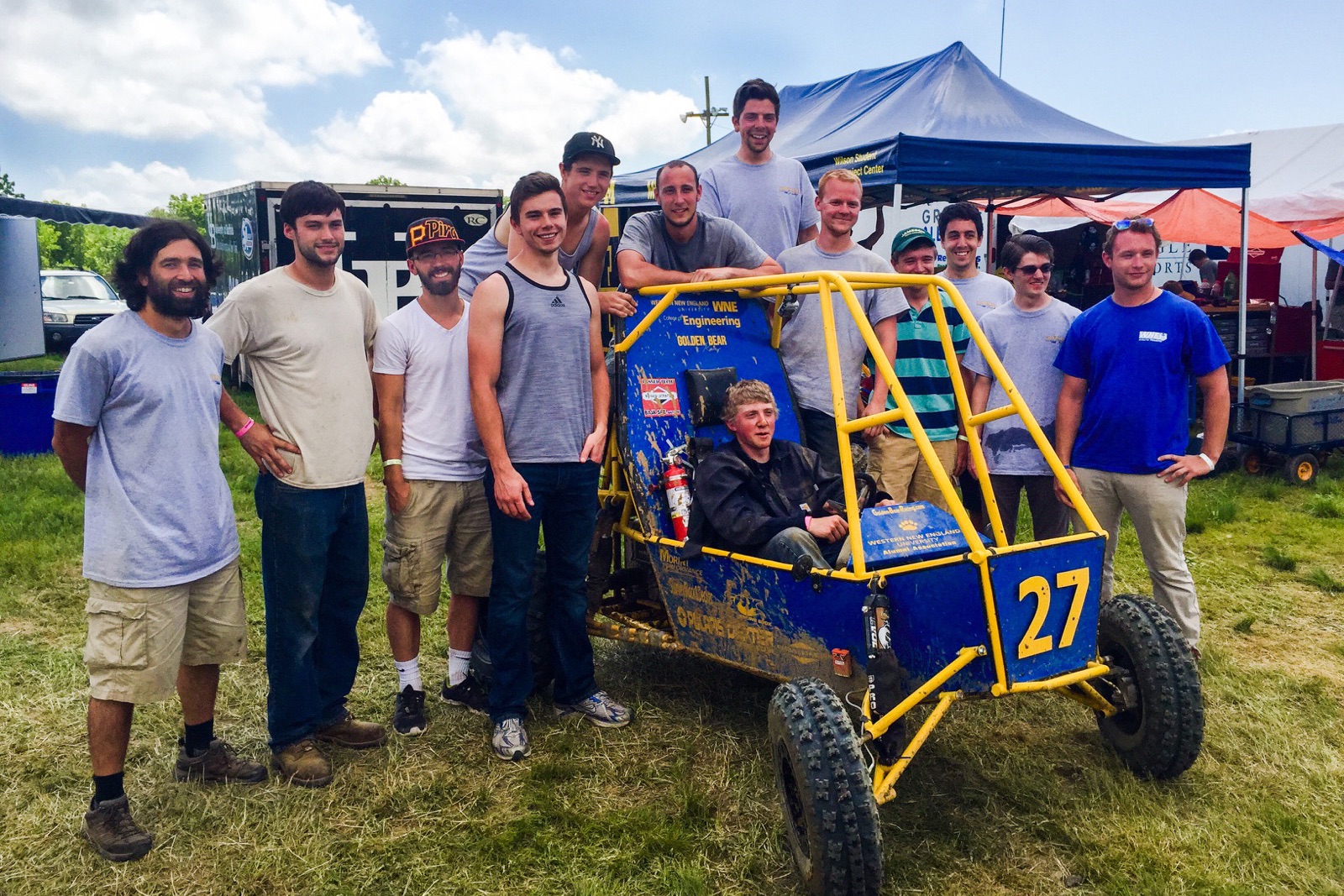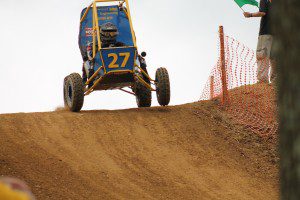 SPRINGFIELD – Western New England University engineering students recently competed in the Society of Automotive Engineers (SAE) Mini-Baja competition in Maryland. The student racing team, including junior Jeremy Downs of Falls Village CT, participated in this highly competitive international Baja race program against 97 other colleges and universities from around the world, including India, Israel, South Korea, and more. This was the University’s first time competing in this prestigious but grueling annual event. Mini-Baja racing is a form of off-road “dune buggy” style racing on dirt or sand courses.
SPRINGFIELD – Western New England University engineering students recently competed in the Society of Automotive Engineers (SAE) Mini-Baja competition in Maryland. The student racing team, including junior Jeremy Downs of Falls Village CT, participated in this highly competitive international Baja race program against 97 other colleges and universities from around the world, including India, Israel, South Korea, and more. This was the University’s first time competing in this prestigious but grueling annual event. Mini-Baja racing is a form of off-road “dune buggy” style racing on dirt or sand courses.
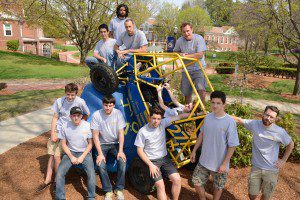
“The Baja Race project was an amazing educational experience,” explained sophomore Alec Guay of Westfield. “Our team spent two years preparing the mini-Baja vehicle, and I was selected as our SAE Club Leader.”
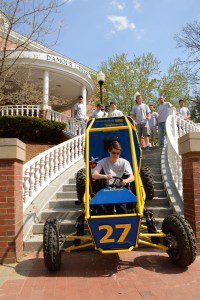
The team of engineering students worked for two years to raise support, design, build, test, promote, and race a vehicle that meets specific Baja SAE® design specifications, size constraints and other rules. All university teams are required
to using the same model of Briggs & Stratton 10-HP engine.
“This was our first design and we did great, but there always room for improvement, that’s what engineering is about,” said Guay. “Our vehicle weighed about 570 lbs, a bit heavy compared to Cornell University’s vehicle at 299 lbs. The main goal for next year’s competition is to reduce weight while maintaining our main performance characteristics.”
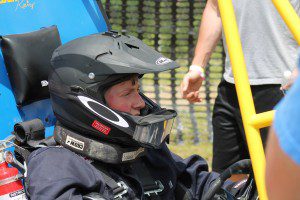
The four-day competition is comprised of several events. The first two days focus on “static” events such as sales and design presentations and a thorough technical inspection of the vehicle (all cars must be deemed safe for racing by SAE judges). The third day focused on four “dynamic” mini-events: acceleration, hill climbing, maneuverability, and suspension/traction. Finally, the main event takes place on the fourth day, a four-hour endurance race through a difficult race course filled with obstacles, where the goal is to complete as many laps as possible without breaking down. This year, nearly two dozen vehicles broke down within the first hour of the race. The Golden Bear vehicle was among the few still standing by the end of the four-hour endurance marathon.
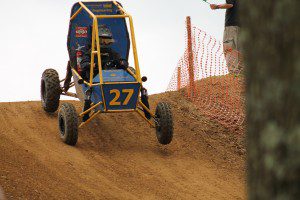
Western New England University’s performance was truly outstanding. Most notable results were: 18th place in the endurance race, 10th place in the sales presentation, and 30th place overall (all static and dynamic events combined).
“I am extremely proud and thoroughly impressed with what these students have accomplished,” said Dr. Jose Riofrio, assistant professor of Mechanical Engineering and team advisor. “As a first-year Mini-Baja team, our students stood tall against top-tier teams, some of which have 25+ years of Mini-Baja racing experience. Our success is a clear indication of the quality of our students and our engineering program. The team is more motivated than ever to continue to improve and find a spot in the top 10 overall rank,” Riofrio said.
“Everyone on the team worked really hard towards a common goal and we learned together every day of the project,” said Guay “We’re proud of what we accomplished, but, as soon as we got back to school after the race, the team went back to the drawing board to make modifications, and make next season even more successful.”

